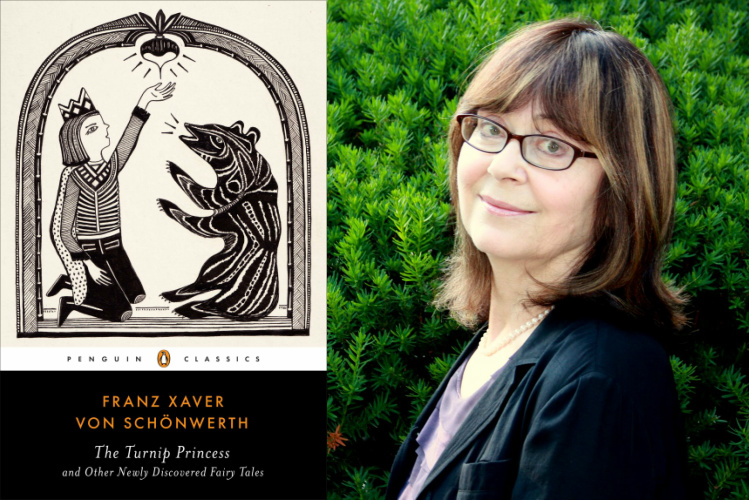A woman had a son named Jacob, and he was the source of much pain and sorrow. Her irritation with him grew until one day she cried out: “I’ve had it! It’s time for you to leave home and find a master, even if it’s the devil himself!”
Jacob heard these words and felt so bad that he left home and decided to find an apprenticeship. As he was walking along, he met a man who asked him where he was heading. The boy replied: “My mother ordered me to find work, even if it’s with the devil himself.”
“Well, then you are quite welcome to come with me,” the stranger said, and the two started walking together.
Their path took them through a mountain canyon, on to an underground cave. The boy was ordered to tend fires under many different cauldrons. His master warned him that he must never lift up any of the lids or look inside.
Once, when the devil was visiting the world aboveground, Jacob was overwhelmed with curiosity and lifted one of the lids, despite the warning. A humming noise rose up as if flies were swarming around him, but as it turned out, it was the noise of souls who had been damned, then boiled up in the pot, and were now simmering on the fire. After giving in to his curiosity, Jacob suddenly realized with horror that his grandmother was among the wretched in the cauldron. She recognized her grandson and asked how he had traveled down to where she was. Jacob told her everything that had happened. His grandmother said: “You won’t be able to stay here much longer. As soon as Satan returns home, he is going to give you your wages and let you go. But don’t take more than three coins from him. If you do, he’ll break your neck.”
When he returned from his visit aboveground, the evil one knew exactly what had happened. He summoned the boy and told him that he would have to leave. And he gave him his wages, but the boy took no more than three coins, and Satan let him off the hook and allowed him to depart.
When the boy was back from below, he met a woman who asked him for alms: “I was in service for three years and all I have left are two kreuzers.” Jacob gave her one of his three coins. A second beggar woman asked him for a kreuzer, and he gave her another of the three coins he had received and kept going. Then an old man saw him and said: “I was in service for three long years, and I have nothing to my name.” Jacob took the last kreuzer out of his pocket and gave it to the beggar. The man said: “You have been so generous in dividing up your wages among us that I am going to grant you three wishes, all of which are guaranteed to come true.”
The boy said: “First of all I am going to wish to end up in heaven. Then I would like a musket that always hits its target and a fiddle that makes everyone dance to its tune.” He was granted all three wishes.
Jacob decided to try out his enchanted musket at a shooting contest. And just imagine, he won all the prizes, much to the chagrin of the other sharpshooters. They accused the boy of using black magic, and after a short trial he was sentenced to death. His execution was to be carried out in public.
On the day set for the execution, Jacob was allowed one last wish. He climbed the ladder and asked to hold his beloved fiddle one last time before a rope was put around his neck. Once he was up there, he started playing like a wild man. The executioners began dancing on the ladder and plunged to the ground. The priests and all the men and women in the crowd began whirling around madly, bumping up against each other, but Jacob kept playing more and more wildly, until everyone fell to the ground, exhausted from the frenzied movement. He quickly climbed down the ladder and slipped away while everything was still quiet.
Ever since that day Jacob has appeared from time to time when people are dancing, and every once in a while someone will drop dead while he is fiddling.
***
From The Turnip Princess and Other Newly Discovered Fairy Tales by Franz Xaver von Schönwerth, published on February 24, 2015 by Penguin Classics, an imprint of Penguin Publishing Group, a division of Penguin Random House LLC. Selection and foreword copyright by Erika Eichenseer, 2015. Translation, introduction and commentary copyright by Maria Tatar, 2015. Purchase the rest of the stories here!

